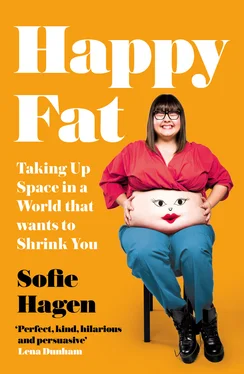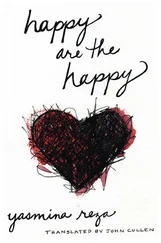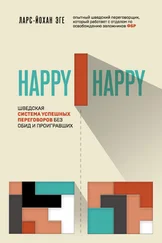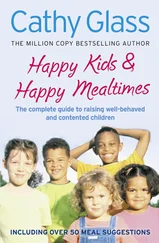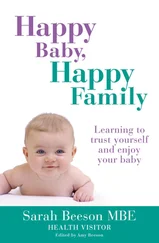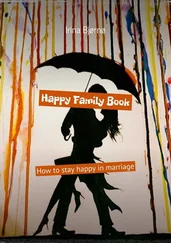‘I am never more than my looks.’ Another message popped up on my desktop.
‘I can never make real friends. If I laugh at someone’s boyfriend’s joke, they immediately accuse me of trying to steal him away from them. If I am polite, I am being fake. If I am mean, I am stuck-up. People tell me to my face that they hate me. They feel like they can, like I owe them something. I never chose to look like this,’ wrote another girl.
I assembled it all into an essay which I guiltily handed in the following day. I was left with a feeling of hollowness. I had a whole handful of resentment and nowhere to put it. Surely, someone was to blame for the way I felt. At this point, the best thing that could have happened was being forced by a teacher to write an additional essay on capitalism and beauty standards. But no one opened my eyes to that till years later. And it was hard to shake, this completely irrational and unfair hatred of beautiful people.
Jealousy of beautiful people is understandable. Privilege comes with what society perceives to be beautiful.
Beauty is a tricky one – because you can’t blame someone for being beautiful, but you can blame the culture that created the idea of ‘ideal beauty’. It has been decided that beauty is having a symmetrical face, straight, white teeth and white skin. Your eyes can be too far apart or too far into your head. Your ears can be the wrong angle. This is the Western idea of ‘beauty’. Of course, you must also be thin and nondisabled and definitely feminine if you are perceived to be a woman, and masculine if you are perceived to be a man. There are definitely icky racist, ableist, sexist, queerphobic and fatphobic connotations connected to ideas of what beauty is and what it is not. Class plays a role too: beauty can often be bought. Plastic surgery, teeth whitening, braces, contact lenses, and just a general ability to at least make your life look beautiful on social media. That fancy cup of coffee in that fancy coffee place with just the right filter.
Beauty is so subjective. It is laughable that we have somehow been tricked into thinking we all should find the same thing pretty. But we are frail and easily influenced. So we can’t deny that the lie that says beauty is objective means that some people who do not live up to those standards will be discriminated against. (Maybe this is why we, as a society, tend to love it when beautiful people struggle. We like to laugh at models falling on catwalks or the ‘dumb blonde’ trope in Hollywood films.)
Funnily, very beautiful people and fat people have something in common. Such as people being surprised when we accomplish things. It will stem from very different assumptions. If I ran a marathon, people would look at me with raised eyebrows and open mouths. Wow. For a fatty, she sure can run. I would be praised. If a really beautiful person gets a degree in law, they make movies about it. Wow. But why can she think? She doesn’t need to.
The idea that there is an objective beauty is soul-destroying, and it begins to feel like currency.
There is a scene in the movie Seven where a fat man is used to symbolise gluttony. He is also, surprise surprise, seemingly mentally ill, definitely poor, definitely unhygienic. Four traits that are always mushed together in Hollywood as if they are interchangeable. In another scene, the murderer has disfigured a supermodel and given her a choice: to keep on living, being ‘ugly’ for the rest of her life – or kill herself. Spoiler alert: she kills herself. This is not even that far from the truth. A study conducted by the Department of Psychiatry at the University of Florida in 1991 shows that out of a group of formerly fat people, given the choice between becoming fat again or going completely blind, 89 per cent will choose going blind. 3In another 2006 survey conducted by the Rudd Center for Food Policy and Obesity at Yale, almost half of those asked indicated that they would happily give up a year of their lives if it meant they were not fat. 4
I never believed that I could be found attractive. Part of me loathed the boys and girls who liked me, because surely they were either lying or horrible people themselves. Why would they want me , when they could get someone better ? Someone thinner ?
I remember a desperate boyfriend hissing into my face, ‘If only you could see yourself the way I see you,’ and me rolling my eyes at him saying, ‘You have to say that.’ And I laughed when he eventually cheated on me with a thin woman, because the joy of being proven right was more powerful than the pain of being cheated on.
Another boyfriend joined the military and had to be gone for long periods of time. I was so scared of being alone, of not being validated, that I joined yet another gym and started working out. Within a day, my entire world went back to revolving around weight loss. I started starving myself, counting calories, skipping school, so I could spend upwards of six hours in the gym, weighing myself four times a day and losing weight rapidly. By the time my boyfriend finally came home to see me for a weekend, I was angry at him for interrupting my stride. I blamed him for accepting me as I was, so I stopped feeling the need to exercise. As soon as he came back for a weekend, I started binge-eating again, gaining all the weight back and then some. I blamed him for that. I would not let him in. I would let no one in. I would let no one love me. Because I refused to believe it was a possibility. I was fat.
Looking back, I was in a fairly fortunate position. I was fat, but I was a small-fat. I was just about excluded from being able to buy clothes in straight-sized stores. I was ‘Aw, you’re not that fat’-fat. At the same time I had stumbled into a group of friends who cared about me and who had forced me out of my shell. It’s important to note that a lot of fat teens are pretty secluded and isolated – a consequence of bullying and having internalised the fatphobia they’ve experienced and witnessed. I talk flippantly about my teen years and the dramatic stories of love and sex, but I do so with the knowledge that not all fat people have had this experience. I especially feel this as I have grown older and fatter and my anxiety has risen. Being able to date and fool around is not a given for everybody.
I am not even sure you know how horrible it is being a teenager before you’re an adult. When you are a teenager, your hormones take full control of your every move. When I was a teenager and I fell in love, I loved more than anyone had ever loved before in the history of the world and I would die, simply die a violent death for a person with whom I had never even spoken. It’s truly a matter of swaying between all the extreme versions of every emotion to the sound of a hundred adults asking you to figure out who you are and what you want to be. And you are both scared and at the same time, convinced that you definitely know better than these adults . Your teen years are also full of warnings. All the monsters that you thought were under your bed when you were a child are suddenly real – and they are not under your bed where you can see and contain them. They are the reason you are asked to never leave your drink out of sight, the reason you don’t walk home alone, and the reason you have to learn how to say no if there is something you don’t want to do. Yet, fairly often, we are not warned about the monsters that we can see – the people controlling everything that we consume. The people targeting marketing campaigns at teenagers’ fragile self-esteem, confirming their worst fears: that they are not okay, that they should be prettier and thinner and better. Basically shaking the groundwork for the person they are to become. You don’t know who you are or who to be? We will tell you. Be thin and pretty. How? By using our products . Daddy, is there a monster under my bed? Yes, actually, and he is holding a Slimming World brochure .
Читать дальше
